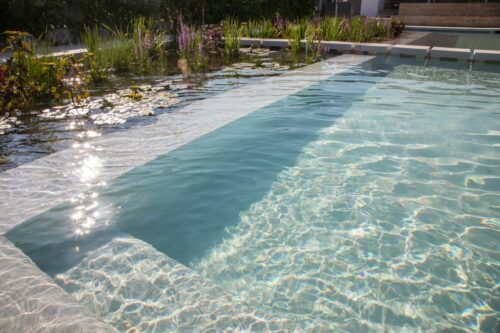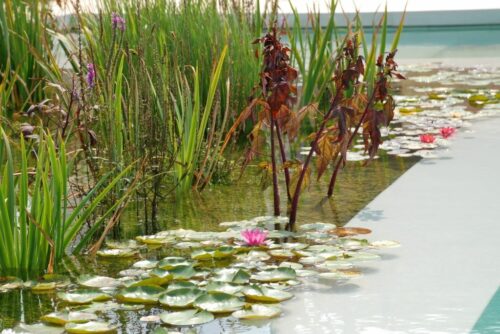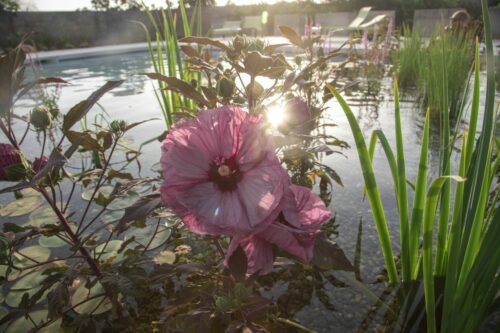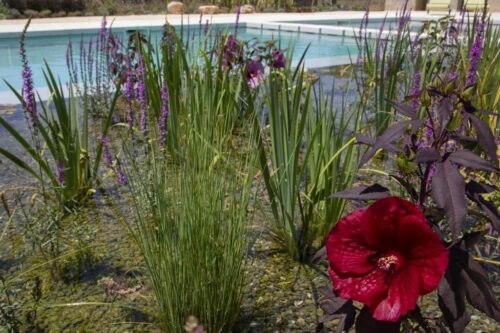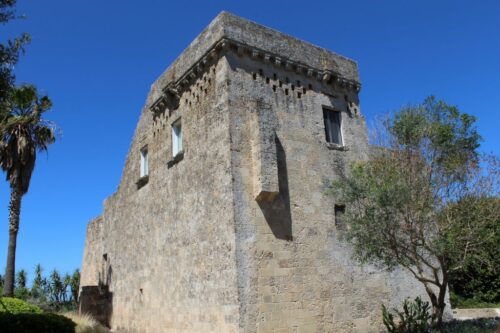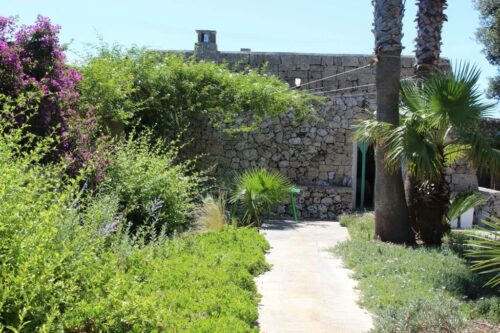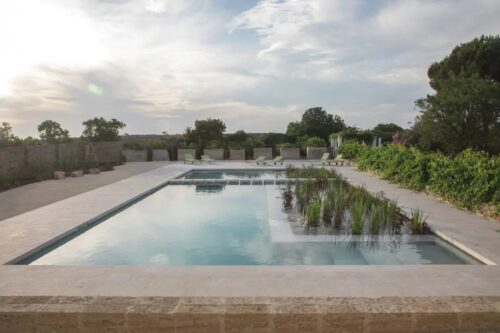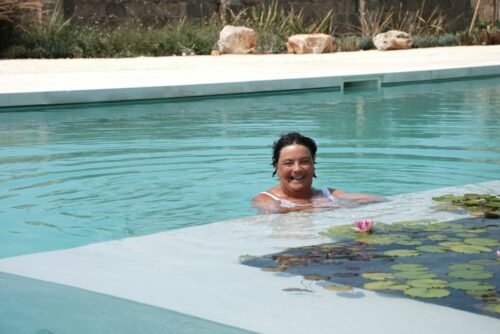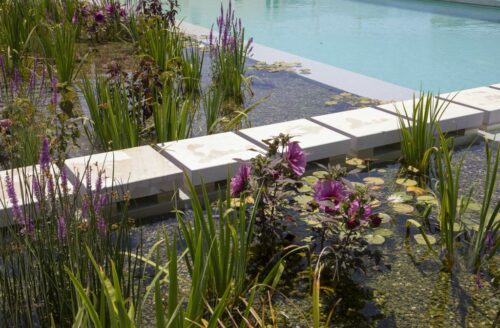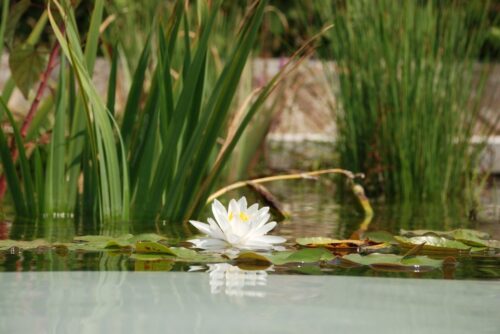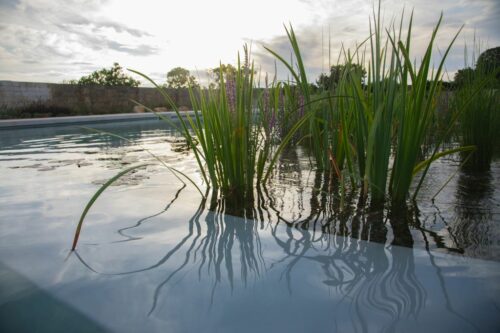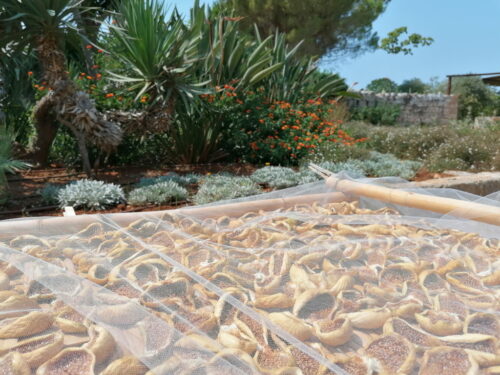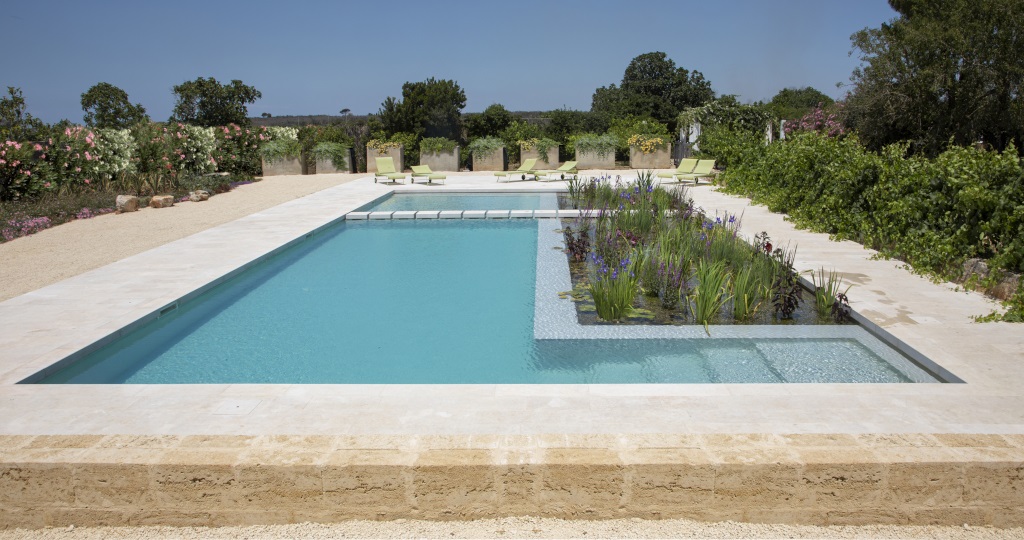Location: Masseria Gianferrante, bio-sustainable farmhouse, about 3 km from the sea – Ugento, Lecce
Year: 2021
Total bio-pool surface area: approx. 150 sqm
Area 1 aquatic plants (h 80 cm) mq 20,85
Area 2 aquatic plants (h 80 cm) mq 34,77
Children’s bathing area (h 60 cm) mq 30
Adult bathing area (h 140 cm) mq 66
Garden and bio-pool project: Landscape architect Filippo Piva (Studio Pampa)
Works direction: Architect Roberto Quaranta
Construction of bio-pool: (plants, technical systems, waterproofing, aquatic greenery/phytodepuration) Vera Luciani (Luciani Biolaghi) with Officine Marchesi 1815.
Description
The intervention consisted of waterproofing the basin, installing the technical filtration system for the natural pool and planting the aquatic plants, as part of a project by Filippo Piva, who envisaged the recovery of the masseria’s garden and vegetable garden from an eco-sustainable point of view, with organic farming (orchard, olive grove, vegetable garden) and water recycling. The garden was later enriched by the inclusion of the natural pool, created by converting an old chlorine pool that had not been used for some time. A little-used area of the masseria, which offers tourist accommodation during the summer season, has thus become a true oasis offering refreshment on hot southern Itlay summer days. From here, in the water or under the pergola, you can see the surrounding countryside and the sea in the background. In the pool there is a shallow area intended for children, one for swimming ideal for adults, and two large areas of lesser depth entirely occupied by aquatic plants, which together with the technical plant and mechanical filters keep clean the water, chemical-free.
For the filtration, shading and oxygenation of the bio-pool, Vera Luciani used aquatic plants such as Phragmites, Nymphea, Iris, Arundo, Hibiscus, Houttuynia, Carex, Lythrum, Caltha, etc. The various species, with their abundance of colourful spring-summer blooms, fit harmoniously into the pre-existing garden, which is mainly characterised by native plants such as Mediterranean plants, grasses and shrubs, which take over the areas left uncultivated by agriculture and further enrich the garden with colours and scents.
